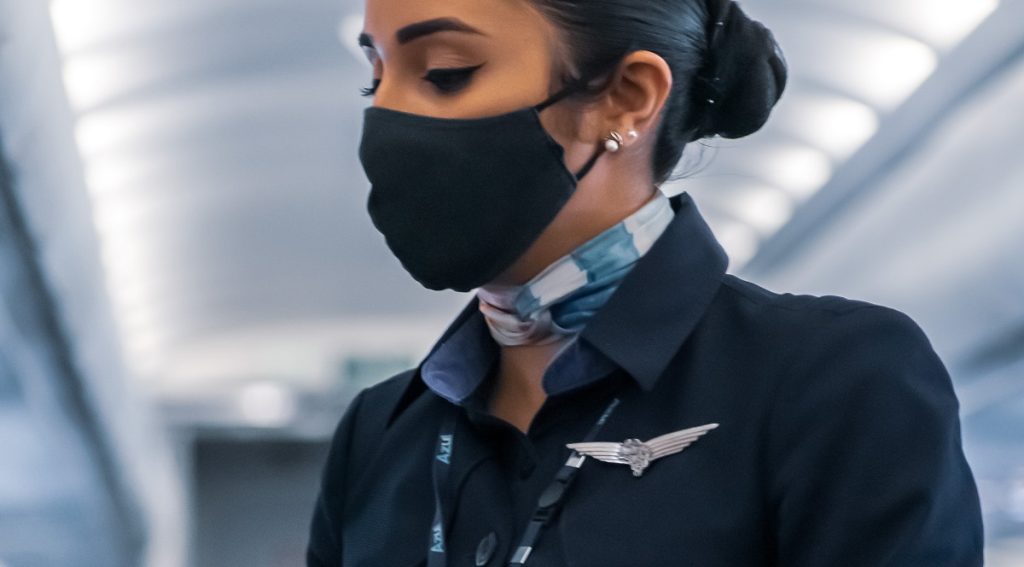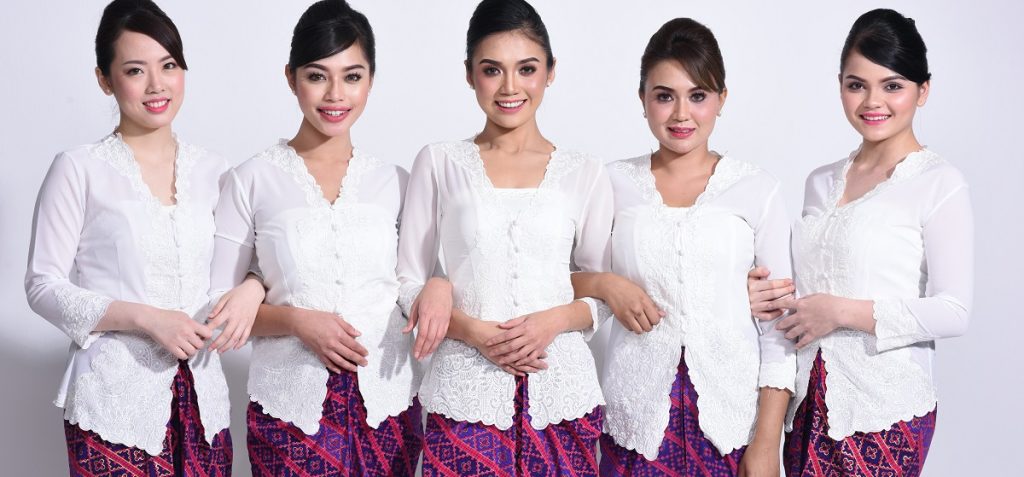Interview questions for flight attendants tend to be confusing, and many candidates freeze up when having to answer them. Individuals worry about how this reflects on them as a candidate, as it shows they are unprepared and break under pressure.
Everyone aspires to excel in their interview and secure their dream job, but many struggle with effective preparation. The key lies in understanding your unique strengths and leveraging them during the interview process. This is where the HIGH5 strengths assessment becomes invaluable. By identifying your top strengths, you gain a clear advantage in articulating your value to potential employers. The reality is that preparing for an interview doesn’t have to be nerve-wracking or confusing when you’re armed with self-awareness and a strengths-based approach.

In fact, there are a few steps you can take to prepare that greatly reduce your stress. In this article, we will reveal those tips and add insight into why flight attendant interviews are so important.
What skills are employers and hiring managers looking for when interviewing flight attendants?
Every company has different sets of values and goals. They appeal to different types of customers, fly to different places, and want their employees to therefore have different skills. However, there are some abilities that are required of nearly every flight attendant.
These skills help flight attendants ensure they are orderly, friendly, and able to serve their customers in the best way possible. If you can acquire some of these skills, you increase your chance of acquiring the flight attendant job of your dreams. Some of these skills include:
Flight attendant qualifications and certifications
Flight attendant positions require you to be educated in the field. They need you to know of the procedures that help you cater to their clients. For instance, if you do not know how to operate basic plane machinery, the client may feel unsafe with you being around them.
Additionally, if you do not know how to manage the food or where to find commonly needed items, the client will likely be annoyed. The employer needs you to have these skills to avoid such consequences.
Evacuation procedures
Evacuations are one of the most important topics to be informed about as a flight attendant. Plane company HR managers deeply care about safety. After all, that is what is most important in a flight. Nothing else will matter if customers do not feel safe.
You should get familiar with the common safety techniques used to keep customers safe. For example, learn where all of the evacuation spots are, and the most efficient way to leave the plane if need be. Learn how to communicate this to customers. You will learn to do this in many certification programs.
Safety equipment
As previously mentioned, safety is the number one priority for both customers and hiring managers. So, you need to ensure that you are aware of not just evacuation procedures, but also how to use safety equipment.
This should not take an immense amount of time to learn and it shows you are prepared as an employee. Some commonly used safety materials in flights include oxygen masks (for passengers and flight attendants), life vests, mock seat belts, and more.
Communication skills
Throughout your flight attendant career, you will constantly need to use your communication abilities. Whether it be speaking to a customer who has extreme demands, or a flight attendant colleague who needs your help, communication is a key part of the flight attendant lifestyle.
You cannot just keep to yourself in this job. A part of being helpful and friendly is being willing to speak up, communicate clearly, and listen in return. You will also need to communicate within your team to avoid misunderstandings and conflicts.
Soft skills
Soft skills are crucial for success in the flight attendant role, enabling effective customer communication, organization, motivation, and empathy. The HIGH5 strengths assessment is an excellent tool for identifying and developing these essential soft skills. By understanding your unique strengths profile, you can pinpoint which soft skills come naturally to you and which may need further development. For instance, if ‘Empathy’ or ‘Relationship Building’ are among your top strengths, you’re likely to excel in passenger interactions. This self-awareness not only helps you prepare for interviews but also demonstrates to employers your commitment to personal growth and professional excellence.
Without these skills, it is very difficult (nearly impossible) to acquire a job as a flight attendant. This is so because even if you are very knowledgeable about flights, you need to have the skills to work well with your team and customers. That is when soft skills come in to save the day.
Stress coping skills
Flying thousands of miles in the air, dealing with customer demands, working with colleagues that may misunderstand you – all of these scenarios are stressful for most people. However, you will need to do this on a daily basis as a flight attendant.
Knowing how to deal with stress with save you not just time, but frustration. You cannot be in a constant state of frustration and stress in this line of work, as customers will pick up on that energy.
Pro Tip From HIGH5
Create a ‘strengths story bank’ based on HIGH5 test by recalling specific instances where you’ve successfully applied each of your top 5 strengths in professional or personal situations. These stories will serve as powerful examples during your interview, demonstrating how your natural talents contribute to effective performance as a flight attendant.
18 Flight Attendant (Cabin Crew) Interview Questions and Answers
Now that you know of the many skills flight company HR managers are looking for, you might be even more curious about what the interview will truly look like. Every company asks different questions. This is part of what makes the process stressful and unpredictable.

However, there are still ways you can effectively prepare. For instance, you should prepare some answers for the most commonly asked and important questions you could be asked. Some of these common questions include:
1. If a client is refusing to follow the instructions you gave before takeoff or during the landing, what would you do?
The best flight attendants know to stay respectful, but sometimes need to get a bit firm. This is so because you cannot have individuals disobeying clear safety instructions, as it threatens not just the client, but everyone around them.
Thus, the best way to approach this question is by showing you know how to balance firmness and friendliness. Show that you will try to resolve the problem in a non-intrusive way if possible before escalating it for the sake of others’ safety.
2. Some passengers are afraid of flying. How would you react if someone panicked because of their phobia?
As a flight attendant, you will get a wide variety of clients to work with and assist. Sometimes, these clients will be extremely afraid of flying, be uncooperative passengers, and may even panic as a result. You need to show you will not panic as well (this is what this question is getting at: can you control your emotions and react quickly?).
Demonstrate how you can calmly address the client’s needs and how you will keep other passengers safe in case the panicking individual begins to invade others’ personal space.
3. Take me through your first few steps of addressing in-air emergencies.
Many of the questions the interviewer will ask you are going to center around emergencies and safety. Be prepared to outline how you address these scenarios. This will help the interviewer understand that you are a quick thinker, creative, and efficient.
It also demonstrates some key strengths you may have, such as an ability to work with others to achieve a common goal. These steps should be unique to you, but you can take inspiration from the steps outlined in flight attendant courses.
4. Which flight experience did you enjoy most?
When sharing your most enjoyable flight experiences with the interviewer, you have a golden opportunity to showcase your key interests, passions, and strengths. This is where the insights from your HIGH5 strengths assessment become particularly valuable. By aligning your experiences with your identified strengths, you can provide concrete examples of how you naturally excel in certain aspects of the job. For instance, if ‘Problem Solving’ is one of your top strengths, you might highlight a situation where you creatively resolved a passenger’s issue. This approach not only demonstrates how you’ll fit into their team but also illustrates your self-awareness and ability to leverage your strengths effectively in your role.
If you chose to highlight something superficial or for reasons that do not identify with the employer’s existing team, then you may be less likely to acquire the job.
5. Describe your top customer service skills to me.
Having excellent customer service abilities is crucial for ensuring that your clients leave the flight satisfied and energized. Without these skills, you will likely get rejected by the employer. Therefore, you need to highlight what makes your approach to customer service so effective.
Note how you go above and beyond to make the customer experience enjoyable, such as by offering assistance whenever possible or using your active listening skills to remember the customer’s needs.
6. How would you overcome tensions if you were in an intense situation with a coworker?
You do not typically get to choose who you work with. You need to ensure that you are able to communicate with a broad range of individuals, and especially well with those in cabin crew positions at the job you are applying to.
Thus, if you can, try to learn about the individuals working at the company from a friend. You should also look back at your prior experiences working with others. Highlight the times when you had disagreements with your coworkers and the strategies you used to overcome those disagreements.
7. What do you feel when introduced to new environments or workplaces?
Every company and airline has different employees, values, goals, and workplace environments. Even if you were the best employee at your prior job, the employer still needs to know you are capable of adapting and fitting into their new workplace.
Without this, you would sabotage the existing team’s cohesion and unity. Therefore, you need to highlight your ability and willingness to unite with others in the workplace and explain how you positively react when introduced to a new workplace (such as by explaining your curiosity and/or willingness to listen).
8. Suppose two passengers both want the same seat. Would you intervene? How would you address this issue?
It is always challenging to get involved in client disputes. But, it occasionally has to happen to keep the peace and ensure everyone’s safety as well as satisfaction. Therefore, the best employees would intervene in such a scenario.
Highlight how you would assist the two individuals and find a common ground. An effective answer would include how you would also keep the scenario from escalating to extreme extents and some of the phrases you would use to calm down the two passengers.
9. What made you interested in working for us?
There are thousands of airlines across the United States, and even more abroad. There has to be a specific reason for committing to the company you are applying to. Stating these reasons will show the employer you are committed to their team and share some common goals such well as values.
Look at the company’s website and at the job description. See if you share some common beliefs and highlight what makes you drawn to the company (whether it be a common mission to focus on a certain route or interest in one of their value statements). It will show you are prepared as well.
10. Do you speak foreign languages? If so, which?
One of the most in-demand hard skills for flight attendants is the ability to speak foreign languages. Having a language barrier with your clients can be awkward and detracts from the customer experience.
However, if customers can be spoken to in their native language, the experience is elevated. They feel more at ease and willing to communicate with you. It adds depth to the experience, too.
So, it is clear that if you do speak foreign languages, take the opportunity to take advantage of this skill and share it with the interviewer.
11. Have you ever flown with us as a passenger? What do you believe our cabin crew team did well, and what would you criticize?
Having experience with the airline as a passenger is not necessary to acquire a job there. However, if you have flown with them before, it can give the interviewer insights into what you believe a successful team looks like.
They want to understand what you think their skill gaps are, and how you deliver constructive criticism. Giving feedback and criticism is crucial for having a strong team. This question will serve as a test on your ability to use this skill.
12. Tell me about a time when you used your excellent customer service abilities to excite a customer.
Airlines do not just want employees who meet their expectations. They want individuals who go above and beyond to make customers excited about flying and especially doing so with their consent.
Compassionate customer service is one great way to make a customer service experience memorable. You can articulate how you listened carefully to others, surprised them with gift bags, went above and beyond finding food for their meals, or something else that demonstrates your outstanding customer service abilities.
13. What would your reaction be to a passenger who is clearly disrespectful?
Respect is a key part of the passenger/flight attendant relationship. You need to ensure you show all of your passengers a high level of respect. However, if they do not reciprocate that respect, then you have the right to address it.
Often, this is necessary to keep the situation controlled. Articulate when you would let some comments go, and when you would intervene. There needs to be a clear threshold. In addition, outline why you intervene – it should be for the benefit of the rest of the passengers typically.
14. What do you believe makes our airline unique?
There are numerous ways to answer a question like this. You could take about routes, technology, and finances, but such answers are often not very meaningful. Instead, you must give an answer centered around values and mission statements to give the greatest response.
This would show you thought more deeply about the question, and it reveals what you believe the most important values are. If your values align with the company’s, this greatly increases your odds of getting hired.
15. What are some qualities and strengths flight crew members should have?
Employers know there are a plethora of different qualities flight attendants need to have to be successful. This question aims to understand what your ideal flight attendant looks like.
It shows the interviewer what you aspire to be, and what goals you are most interested in accomplishing as well as which strengths you believe matter the most to the client.
16. What do you know about our plane fleet and top US hub locations?
The interviewer may ask you a question such as the one above to determine how prepared you are and how deeply you researched the company you are applying for.
If you answer this question correctly and with depth, it will show that you are organized and willing to work hard for the organization you seek to acquire a job. This reflects positively on you as a candidate.
17. Are you willing, able, and prepared to be away from home most of the year?
Being a flight attendant, constantly in the air, may seem simple, but it comes with serious challenges. It can be difficult, both mentally and physically, to constantly be traveling and riding planes. Therefore, you need to have a strategy for keeping yourself calm and energized while away from home.
You should highlight your interest in travel and interacting with people from around the world when answering this question. Note the specific strategies you use to deal with homesickness as well.
18. What makes you want to work for us?
You need to have a very specific reason for being a flight attendant. What inspired you to choose this line of work? Note your passion for travel, interest in meeting others, and any other reason you were drawn to this job.
Then, also highlight what makes this specific company attractive to you. Note how your values align, how you agreed with their mission statement and other reasons you choose this organization over many others.
Pro Tip From HIGH5
When preparing your answers, use the ‘STAR’ method (Situation, Task, Action, Result) and incorporate your HIGH5 strengths into each story. This approach will help you provide concrete, strengths-based examples that showcase your capabilities and potential as a flight attendant.
Questions for You to Ask in a Flight Attendant Interview
Once their interview is over, many candidates release a sigh of relief. However, they miss out on an important opportunity to differentiate themselves from other candidates: asking questions to the interviewers.
While interviews are primarily about the interviewer gathering information from you, you should also show a deeper interest in the company and ask the interviewer a few queries.
This shows you want to go above and beyond to fit in with the team, understand the company’s values, wish to get prepared, and are ready to become a great member of the organization.
Just a few of the questions you could ask the interviewer include:
- How quickly are you looking to hire someone?
- Who will I be reporting to?
- What is your training process for new hires?
- How frequently do you perform performance reviews?
- What does an ideal candidate look like for this role?
How To Prepare for a Flight Attendant/Cabin Crew Job Interview
While preparing for a flight attendant interview can be stressful, it’s also an opportunity to showcase your unique qualities. One powerful way to enhance your preparation is by taking the HIGH5 strengths assessment. This tool provides invaluable insights into your top strengths, allowing you to approach the interview with confidence and self-awareness. By understanding your strengths, you can tailor your responses to highlight how your natural talents align with the demands of the role. For example, if ‘Adaptability’ is one of your top strengths, you can emphasize your ability to thrive in the dynamic environment of air travel. This strengths-based approach not only helps you answer questions more effectively but also demonstrates to employers your commitment to self-improvement and professional growth.

For one, do not just look at the question list we created above, nod your head, and forget about these questions. Instead, you should create a brief response for each of the queries. It does not have to be a highly detailed response; just enough detail to give you a general idea of how to respond will suffice.
This will help you stay calm when the questions are presented as you will not be taken off guard. Rather, you can answer confidently and calmly.
In addition to this, you should also plan how you would arrive to the interview. Prepare what you will wear, when you will wake up, what you will do on the car ride to keep yourself calm (such as listening to a podcast or a certain playlist), and ensure you bring your resume with you. This will help you save some stress on interview day and allows you to practice your planning skills.
To add to that, you should also look deeply at the company’s history. See what other former employees said about the interview process on sites such as Indeed.com and Glassdoor.
Better yet, if you have friends or family that worked for them, ask them about how their interview went. Read and remember the values listed on their company website (if they have them explicitly stated).
Pro Tip From HIGH5
Practice ‘strengths spotting’ based on HIGH5 test in your daily life before the interview. Identify how you and others around you use various strengths in different situations. This exercise will sharpen your ability to recognize and articulate strengths in action, a skill that will impress interviewers and demonstrate your understanding of strengths-based performance.
Flight Attendant Interview Questions FAQs
What do flight attendants say to passengers?
There are a plethora of different phrases that flight attendants say to passengers. This depends on the specific query asked by the passenger as well as the environment the flight attendant is in. The goals of flight attendants saying such phrases is to make the customer feel more welcomed and comfortable. Most often, flight attendants will welcome passengers onto the plane. They may ask them about what they want to eat for breakfast, lunch, or dinner. They will ask the passenger if they need any assistance or if they have questions about their flight. They may address where they are leaving from and where they are traveling to (if the captain does not). Finally, most flight attendants also inform passengers about evacuation exits.
What do flight attendants ask passengers before takeoff and landing?
Befroe takeoff, the flight attendant will likely give a few instructions and provide an overview of the flight. When individuals are boarding the plane, the flight attendant welcomes them in. They may help them find their seats if they need help and reserved them in advance. In nearly every flight, the flight attendant will also tell those sitting near the windows to lift up their window shades. In addition, they will also instruct individuals to put on their seat belts when there is turbulence, tell them about the emergency exists, and outline where they can find the storage for luggage and air bags.
What is the motto of a flight attendant?
Every flight attendant is a unique individual. They have different goals, ideals, passions, values, and strengths. So, each of their mottos may be different. In general, though, many individuals believe that there is a motto that applies to nearly all flight attendants: for most people, the sky is the limit. For flight attendants, the sky is home. This motto simply highlights the fact that individuals working in the cabin crew spend much of their lives being in the air, making it their second home. It underlines the passion flight attendants have for flying and travel. However, other mottos for flight attendants can include: it’s time for another adventure, customers first, and ”when everything seems to be going against you, remember that the airplane takes off against the wind, not with it” – Henry Ford.
What do flight attendants notice about passengers in 3 seconds?
Flight attendants are highly observant individuals. Within the first few seconds of meeting a passenger, they can already make a few mental notes about them. In fact, the media organization “Fact Verse” articulated that in just 3 seconds, the flight attendant may be able to notice whether you are intoxicated or not. They know to assist intoxicated individuals in a different manner than those who are sober by being extra cautious. In addition, they may also notice the way you dress, whether you are respectful, and more.
What is the main priority of a flight attendant?
The number one most important priority of a flight attendant is caring about the passenger’s safety. Without safety, the entire experience is ruined for everyone on board, and it may even cause unnecessary danger. To expand around this idea, flight attendants also pay close attention to and prioritize customer wellbeing as a whole. They want individuals to not just feel safe, but to actively enjoy the flight experience. They go above and beyond to listen to customers and ensure they have a fantastic flight so they are more likely to return and fly with their airline again.



